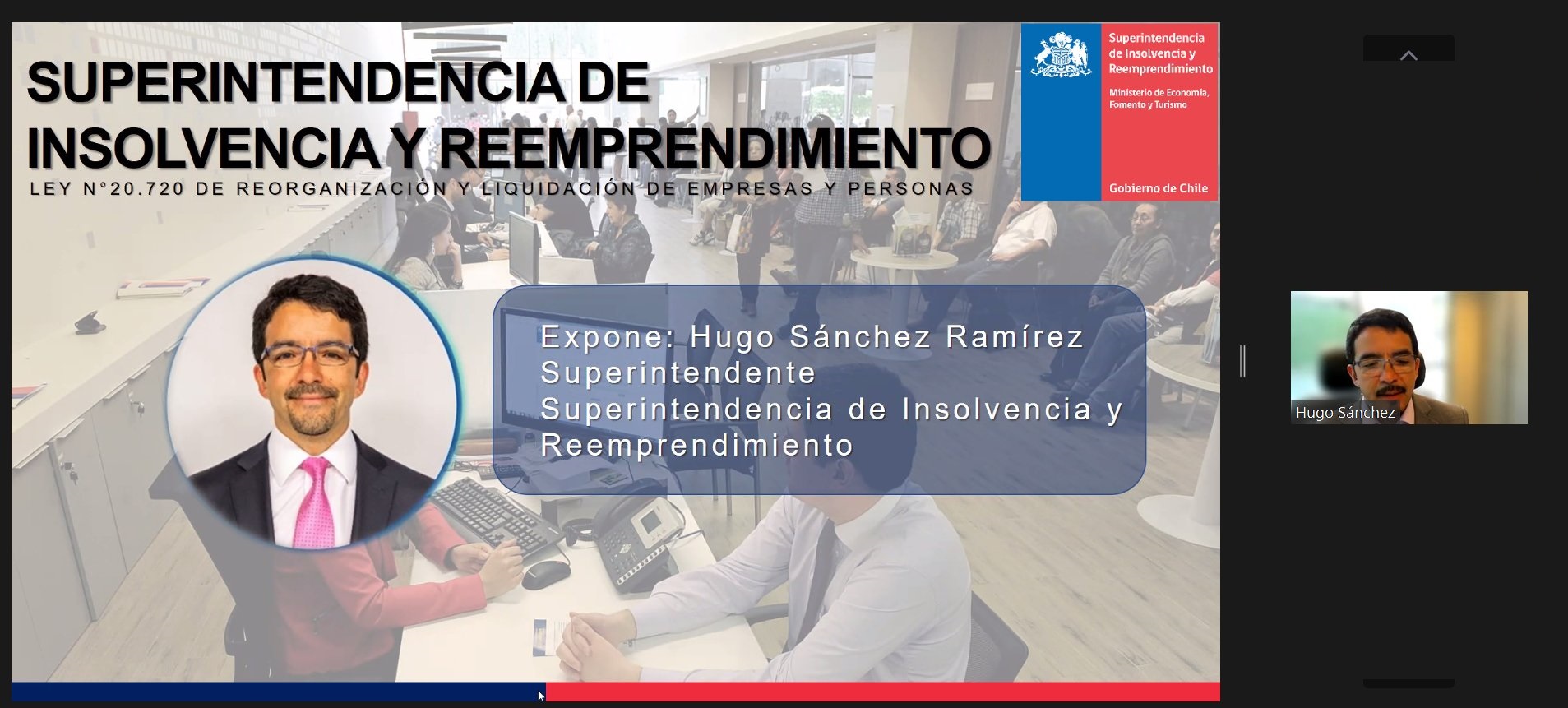
In one of the workshops of the course “The City of Opportunities”, the Superintendent of Insolvency and Restructuring (Superir), Hugo Sánchez, shared knowledge and tools to deal with indebtedness. The Superintendent specified that, thanks to these mechanisms granted by law, people reduce between “2% to 5% of their debt so as to deepen their financial burden.”
The Superintendence of Insolvency and Restructuring (Superir) participated in the course “The City of Opportunities”, created by the Central Bank and the Millennium Institute for Research on Market Imperfections and Public Policy (MIPP). The purpose of the initiative is that secondary education teachers and pedagogy students manage to incorporate and disseminate financial knowledge to their students.
At this event, the Superintendent of Superir, Hugo Sánchez, spoke about an issue that affects thousands of people: indebtedness. During the course, he presented the tools at the disposal of the Institution for dealing with it, made available by the Law of Restructuring and Liquidation of Assets of Companies and Individuals, which helps people and companies in financial crisis to get out of their debt through bankruptcy proceedings.
Debt: How to face it in light of Law 20,720?
Superintendent Hugo Sánchez shared knowledge on borrowing, stating that doing so is not necessarily bad. “It allows people to undertake projects that, without this debt, would take a long time to execute in the face of contingencies and entrepreneurship“. However, the problem is when we do not borrow responsibly and fall into a “debt spiral, or an unexpected situation that leads us to not fulfill our obligations.”
If the person ends up in a “debt spiral”, what can he do? Law 20,720 provides tools to deal with the situation. In fact, the regulations have a series of bankruptcy procedures, in force since 2014. For individuals, there is the “Renegotiation” and “Liquidation” of assets, while for companies there is “Restructuring” and “Liquidation”.
In the words of Hugo Sánchez, these tools are important, since “in Chile, people cannot necessarily take advantage of a debt restructuring, which affects people’s insolvency (lack of short-term liquidity)“.
Opportunities for people and companies in debt
For individuals, the “renegotiation” process is a voluntary and free administrative procedure, which does not require hiring an external lawyer. On average, renegotiation takes about 3 months and is held in hearings where the debtor, his creditors and a Superir facilitator discuss a payment agreement, without a court involved. According to figures from the Superintendence, on average, 92% of debtors who have taken advantage of this procedure reached an agreement with their creditors, a figure that increased to 96% in 2020. According to Sánchez, the debtor renegotiates “better conditions, lower interest rates, grace periods, and can even reduce the debt, allowing, for example, debtors to not pay 2% or 5% of the debt”, he specified.
On the other hand, if there is no financial viability because the debt exceeds income by many times, there is the process of “liquidation”. Unlike renegotiation, it is a judicial process, with its associated costs, since the person is represented by an attorney. If an attorney cannot be afforded, the Superir will provide one. The process ensures the quick and efficient sale of the person’s assets. “Usually between 20% and 30% of the debt is paid, and what is not paid is written off,” said the Superintendent.
For companies, the procedure of “restructuring” of Assets is available. It is a judicial bankruptcy procedure that allows companies to propose an agreement to their creditors, which includes a payment plan for their obligations. In this process, the company continues to function and cannot be sued. “During restructuring, an external inspector approved by Superir will evaluate the company’s assets and present a feasibility report at a creditors’ meeting,” explains Sánchez.
Finally, the “liquidation” process for companies is identical to that for individuals. The liquidator presents a final account statement before the court and uses the proceeds of the liquidation to repay administration expenses, for the payment of the company’s workers, and that of creditors until the debt is paid.
Debt in the context of the pandemic
In conversation with those attending the workshop, when asked about a possible increase in the number of renegotiation cases for companies and individuals in light of the Covid-19 pandemic, the Superintendent indicated that, although the projections were high, there were no changes with respect to these procedures.
“In 2020, compared to 2019, the number of liquidation cases for companies and individual debtors increased very little, about only 8% to 10%, compared to growth rates of around 30% in previous years“, said the Superintendent. Meanwhile, for this year, the use of this process has fallen to 14%. The reasons that explain this decrease could be the liquidity of people from the aid packages, debt repayment postponements from banks, and the 10% withdrawals from the pension funds.
Despite this, Sánchez indicates that “in general, insolvency proceedings are not the first solution people and companies seek to benefit from . They approach the Superintendence only as a last option”.
MIPP Chile 2025